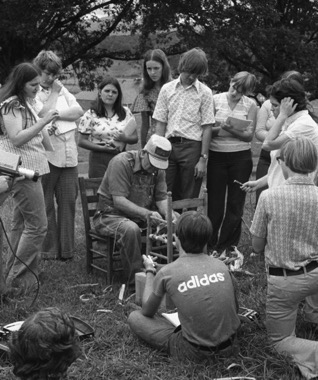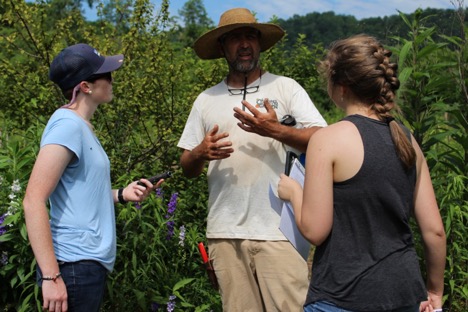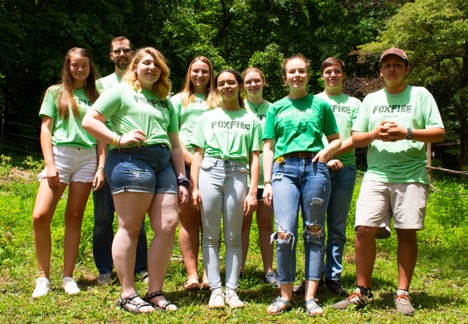By Kami Ahrens
This article appeared in the Volume 1, Issue 2 Fall 2019 issue of the Appalachian Curator. Click here to view a PDF of the full issue.
Since 1966, Foxfire, a non-profit heritage preservation organization in Northeast Georgia, has been recording and sharing oral histories from across Southern Appalachia. Since its inception in a high-school English classroom, the organization has been rooted in the local community. Unlike larger institutions created by collectors, Foxfire’s collections were identified, captured, and curated by the community. Today, the organization has grown into a formal museum and archive maintained by professionals, but retains its relationships and roots within the community. Through experiential learning opportunities, community events, and educational outreach, Foxfire seeks to engage with and empower the local community, especially its youth, to take charge of its culture by reconnecting community members with their roots.

With over fifty years of active collecting within the community, Foxfire’s oral history archive contains over 2,000 interviews from North Georgia and surrounding Appalachian communities. All of these interviews have been collected by high school students, who transcribe their interviews and write articles about the history, heritage, arts, and traditions of Southern Appalachia. Foxfire’s methods for facilitating the collection of oral histories has changed over time, but the current structure is based around an eight-week immersive fellowship program for local high school students that provides a paid opportunity to explore cultural journalism, history, and heritage crafts. However, Foxfire’s involvement with the community doesn’t begin and end with high school students—local residents make up the community advisory board, which oversees access and use to the archive, as well as manages special events and programs throughout the year. The general public is also invited to engage with their heritage through programming, classes, and events.
Any discussion of community partnerships unfortunately must include obstacles and challenges encountered along the way. While many voices can equal dissenting opinions, Foxfire welcomes and strives to facilitate such discussions. However, in recent years, the local community has moved away from close involvement with Foxfire. The organization has striven to revive its program for high school students, increase programming and events, and boost its community board membership. While the avenues have been successful, Foxfire is still working towards building partnerships within the community and even further increasing community involvement. Many of these bridges are built by our high school students, who reach back into the community to learn more about their own histories, but also to shape their futures. Several students are interested in documenting change as it happens—from social media to the tourism industry to

opioid abuse. Foxfire encourages these connections and supports students as they seek answers to the hard questions—how does change in Appalachia shape identity and traditions? Contemporary collecting of oral histories expands the narrative of Southern Appalachia beyond the stereotypical traditions and sculpts the future historical perspective of the region. While we cannot capture all voices, we actively seek out diverse and challenging narratives that enrich and grow our understanding of the region.
New interviews (by topic) to the Foxfire collections, 2018-2019:
- Local shepherds raising Jacobs Sheep in Cullowhee, North Carolina
- Regional folk artists
- Interviews on the opioid crisis in Rabun County, Georgia
- Experiences from a National Forest Service firefighter and ranger
- Interviews on the local farm-to-table movement
- Woodstove cooking
- Herbalism and folk medicine in Southern Appalachia
- Local music and instrument making
- Flintknapping
- Local business owners and the tourism industry
- Economic growth and landscape development
- Change in education over time
- Beekeeping
- Movie propmaking
Our archive is open to stakeholders, community members, and researchers. For more information about the collection or research requests, please contact asstcurator@foxfire.org or check out our website: www.foxfire.org
Curated audio from our collections is now available on our monthly podcast, It Still Lives. Find episodes and more on our website (www.foxfire.org/journal/) or subscribe on iTunes.
Kami Ahrens is Assistant Curator & Educational Outreach Coordinator at The Foxfire Fund, Inc.
